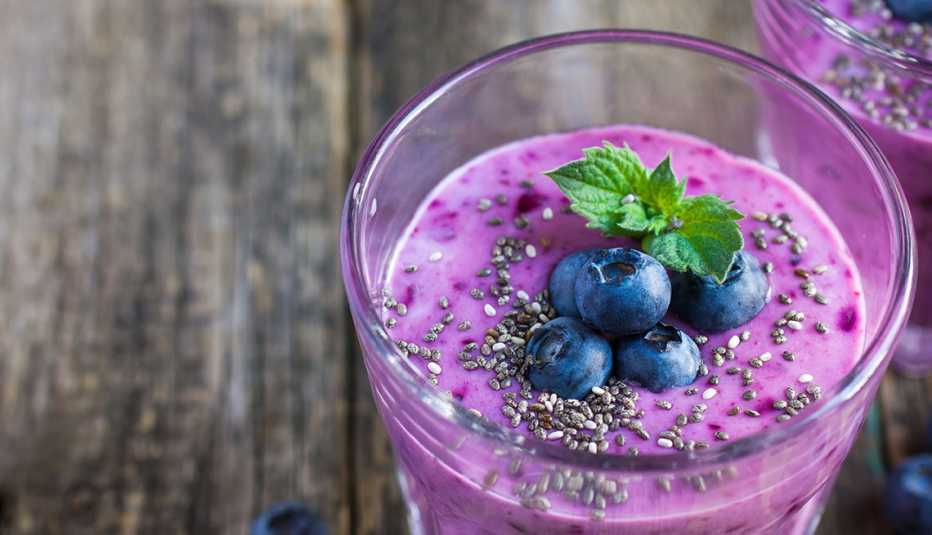AARP Hearing Center


Research shows that people who maintain a healthy weight may live longer. So if you’re on the thin side, should you consider plumping up?
Not necessarily. If you come from a naturally thin family or have consistently had a low body mass index (BMI), a lighter-than-average weight may not be a problem. “Sometimes people have a low BMI but they’re perfectly healthy,” says Allison Miner, a professor of nutrition and dietetics at George Mason University in Fairfax, Virginia. (A BMI less than 18.5 is considered underweight.)
Some research has found that having a bit of extra weight as you age may even be good for you. Some studies have found people with higher BMIs after 60 may have a lower dementia risk than those who were underweight or have a normal weight — though it might be because people lose weight as dementia begins to take hold. Having a healthy weight seems to be important for bone strength as well. Being underweight is a risk factor for osteoporosis and increases risk of fractures. (Obesity has been associated with risk for fractures in some cases, so striving for a healthy weight is best.)
Unintentionally shedding pounds due to things like illness, depression or a medication that steals your appetite can spell danger in your older years. “Unhealthy weight loss can lead to a state called sarcopenia, which is when you’ve lost so much muscle mass that you don’t have enough for healthy function,” says Naomi Parrella, M.D., chief of lifestyle medicine at Rush University System for Health in Chicago.
Trying to gain weight for health reasons sound like an enviable challenge for much of the country but, experts say, putting on pounds can be just as difficult as taking them off. The challenge is making sure that the weight you’re putting on is made up of more muscle than fat. The good news: “The human body is designed to heal and thrive no matter how old you are,” Parrella says.
When it comes to losing weight, men typically have it easier since they have more lean muscle mass than women. Plus they tend to drop weight faster because they have more pounds to lose compared to women. Meanwhile, women have an easier time gaining weight.
As people age, maintaining a healthy weight can become a challenge—but not always in the way you might expect. While it’s often easier for women to gain weight, men generally have an advantage when it comes to losing it due to their higher lean muscle mass. They also tend to drop pounds more quickly because they typically start with more weight to lose.
However, for both men and women, the real concern with aging isn’t just weight management—it’s the gradual loss of muscle mass that naturally occurs over time.
Quick tips for gaining healthy weight
Small changes to your meals and snacks can make a big difference, reccommends Rachel Gargano, chief registered dietitian at Live it Up and a board-certified nutritionist in sports dietetics and breastfeeding. Gaining weight in a healthy way means focusing on nutrient-dense foods that provide extra calories without making you feel overly full. Here is her expert advice:
- Drizzle extra oil or butter on your meals—since they're packed with calories but don’t take up much space, it’s an easy way to get more in without feeling too full.
- Make a PB&J on whole wheat bread, cut it into four pieces, and snack on one throughout the day. Small bites add up!
- Blend up a smoothie for a snack. Use whole milk, nut butter, banana, and frozen fruit or baby spinach for extra nutrients and fiber. Want even more calories? Toss in a little olive.
- Sprinkle seeds, nuts, or avocado on meals and snacks to sneak in extra calories without much effort.
- Don’t skip snacks! Go for high-calorie options like nut or seed butters, whole nuts, avocado, milk or reduced-fat Greek yogurt—make sure to avoid saturated fats which can raise cholestoral.
Here’s 10 more strategies to help you put on healthy weight:
1. Talk to your doctor
Before focusing on gaining weight, it’s worth asking—why was it lost in the first place? Could it be from medication side effects, dental issues like poorly fitting dentures, a recent illness or hospital stay, or even changes in mood like depression?







































































More From AARP
8 Surprising Foods That Help Strengthen Bones
Go beyond dairy to keep your skeleton strongHow Healthy Are Your Cooking and Eating Habits?
See how many of these practices you already use
Health Benefits of 7 Ancient Grains
Delicious alternatives to brown rice that will make your cardiologist happy
Recommended for You